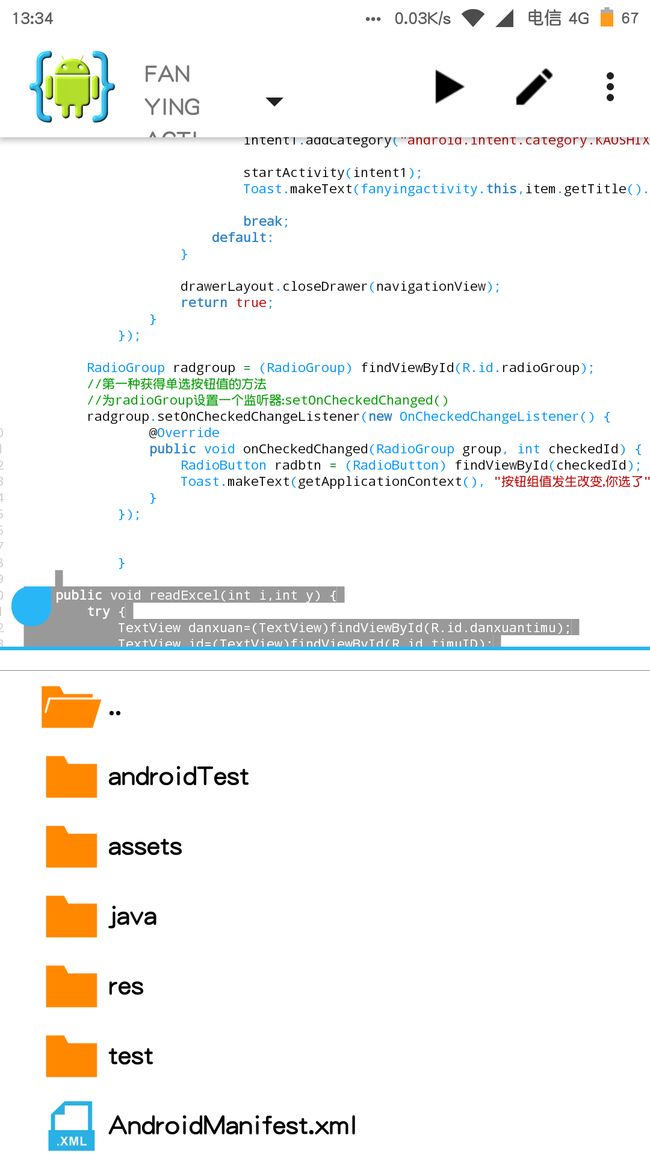要有sd卡读取写入权限。
package="com.mytest.readexcell" >
//以上两个是文件写读权限声明。
…… 一种是excel文件放在assets文件夹内,比如 test.xls 注意,assets和java文件夹在同一个目录下, public void readExcel(int i,int y) { try { TextView danxuan=(TextView)findViewById(R.id.danxuantimu); AssetManager assetManager=getAssets(); Workbook book = Workbook.getWorkbook(assetManager.open("test.xls")); Sheet sheet = book.getSheet(0); id.setText(i+"."); danxuan.setText(sheet.getCell(2,y).getContents()); book.close(); } catch (Exception e) { TextView etxt= (TextView)findViewById(R.id.etx); etxt.setText(e.toString()); } } 另一种 是通过文件的地址来获取。地址的方式有两种:⒈是不可更改的,在代码内写好的,只能通过文件管理器来复制文件到指定的目录下。⒉是通过程序内调用文件管理器来选择指定文件。选定后把文件的地址传递给代码。也可以通过复制到指定目录下。 public void readExcel() { try { txt.setText("运行readexcel"); txtt.setText("初始态"); //InputStream iss = new FileInputStream("/storage/emulated/0/test.xls"); AssetManager assetManager=getAssets(); //不需要加“assets”,注意!! Workbook book = Workbook.getWorkbook(assetManager.open("/storage/emulated/0/test.xls")); //以上是文件的绝对地址。 int num = book.getNumberOfSheets(); txt.setText("the num of sheets is " + num+ "\n"); // 获得第一个工作表对象 Sheet sheet = book.getSheet(0); int Rows = sheet.getRows(); int Cols = sheet.getColumns(); txt.append("the name of sheet is " + sheet.getName() + "\n"); txt.append("total rows is " + Rows + "\n"); txt.append("total cols is " + Cols + "\n"); for (int i = 0; i < Cols; ++i) { for (int j = 0; j < Rows; ++j) { // getCell(Col,Row)获得单元格的值 txt.append("contents:" + sheet.getCell(i,j).getContents() + "\n"); } } book.close(); } catch (Exception e) { //System.out.println(e); TextView etxt= (TextView)findViewById(R.id.etx); etxt.setText(e.toString()); } } 以上两种经不起压力测试,容易造成内存溢出。用流的方式读取文件比较好。
